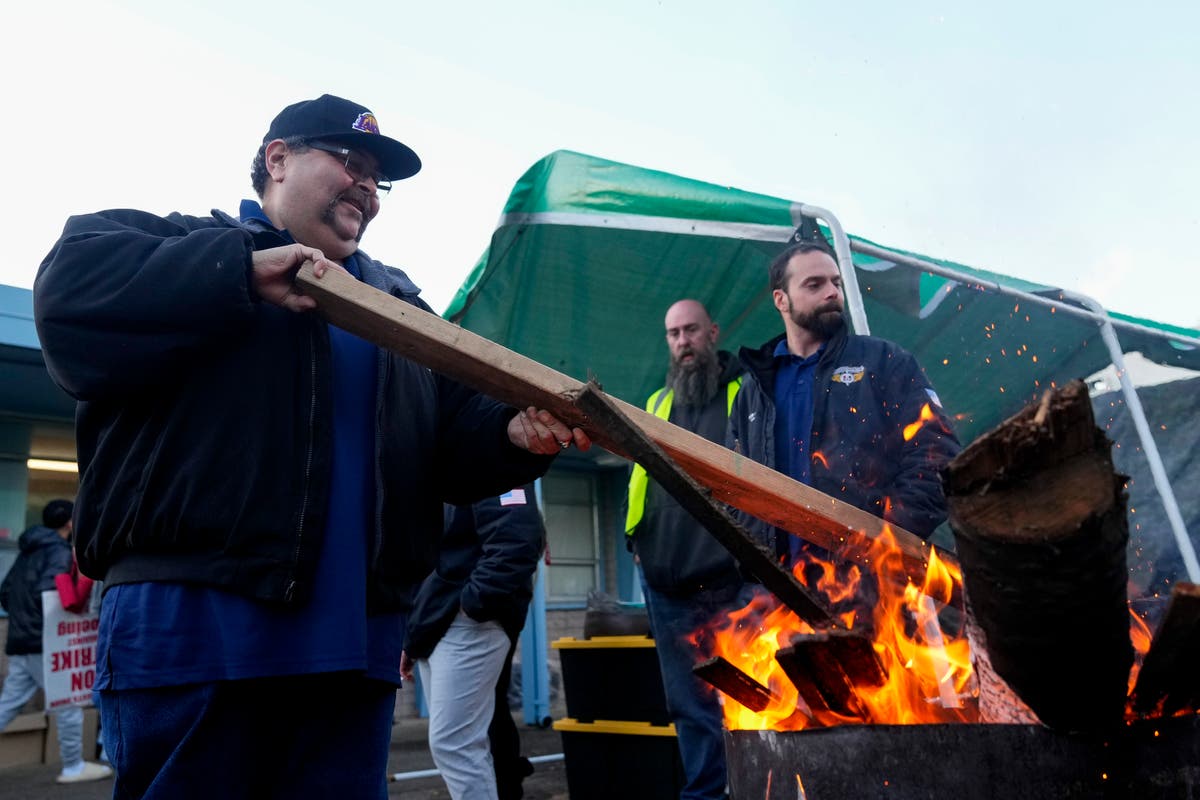 Chris Green
Chris GreenAs ferocious flames ripped through the 18th Century “wonkiest pub”, a slice of history and the apple of the Black Country’s eye was razed.
But grief of the legion of The Crooked House lovers would quickly turn to anger when less than 48 hours after the blaze, on 5 August 2023, the hostelry was demolished overnight.
As the dawn broke, revealing a pile of bricks, the local outcry led to rage as far away as Australia and the US, as supporters called for the iconic watering hole to be rebuilt, exactly as it had been.
One year on, campaigners speak of how their anger galvanised a movement to protect the UK’s heritage buildings – while the pub is no more, it has become a symbol of resistance.

“You could feel the heat of the flames burning you, just watching these images and the pub trying to withstand the diggers, it was like a personal loss,” said Save The Crooked House campaigner Ian Sandall.
Through Facebook, he and his fellow activists have amassed nearly 38,000 people worldwide supporting the cause.
Speaking before a campaign event, Liz Shanley added: “We want to keep it at the forefront of people’s minds, we want to remind people that as a campaign group we’re still as passionate as we were on the day of the fire and destruction.”
 Getty Images
Getty ImagesWithin the last year, the community have vehemently fought to preserve the pub’s legacy, backed by former West Midlands mayor Andy Street, and former Conservative MP for Dudley North, Marco Longhi.
And their efforts have by no means been in vain, especially because South Staffordshire Council served an enforcement notice on the pub’s owners in February, ordering them to rebuild it.
It was served to ATE Farms Limited, the company that owns the pub, as well as the company’s director George Adam Taylor, and former director Carly Taylor who stepped down in December.
They have since lodged an appeal and proposed rebuilding the pub in a different location. A public inquiry to decide whether they do rebuild has been postponed to spring 2025.
Describing his passion behind the campaign, Mr Sandall added: “You can’t feel that way about something, without wanting to stand up and do something, that was the urge, we’ve got to do something to protect this pub.
“I’m still grieving for the pub a year on, and that is our determination, our drive to carry on with what we are doing.”
 Megan Wakeman
Megan WakemanThe movement has reached all corners of the world as one campaigner, Megan Wakeman, has painted an image of the pub on to more than 100 rocks, which have then been transported and hidden as far as Nepal and the Dominican Republic.
While investigating the arson attack, detectives arrested six people – five men and one woman, aged between 23 and 66 at the time last year – but Staffordshire Police announced earlier this week that they have been released from bail but remain under investigation, as inquiries continue.
Paul Turner, a campaigner, recalled: “I was absolutely devastated, it had been there all my life, all my dad’s life, all my grandad’s life, it had been there for generations.
“With this campaign and the fight to get it back, once that’s achieved the history of the place will be even more rich than it ever was.”

With its bricks all safely stored away, a planning inspector hearing next year will decide the pub’s future.
Building specialists have said it is technically possible to recreate the leaning building, but the process would require careful consideration.
Architects have deemed The Crooked House as a unique case, because of its building, history and location.
The inn itself dated back to the 18th Century when, in 1765, it was built as a farmhouse. In about 1830, it was converted into a pub and named the Glynne Arms, after local landowner Sir Stephen Glynne.
The “crooked-ness” began in the middle of the 19th Century when, because of mining work in the area, the building began to subside on one side.
 PA Media
PA MediaThe lean was about 15 degrees and the building would have collapsed on its own, had it not been shored up with buttresses, the Lower Gornal local history group said.
The rescue work took the pub into the 20th Century until, in the 1940s, it was condemned and faced demolition. At the last minute though, those faithful buttresses on the south side were further strengthened.
Today though, it is still not clear how gradual the effect of subsidence was or why the decision was made to shore up the structure, Colin Morris, from the local history group, said.
But, its wonkiness was brought to national attention, when the ‘s Nationwide programme visited in September 1974, with a reporter making much of how bottles and other objects appeared to defy gravity by seeming to roll uphill.
Since then, many have said they have tried the same trick with marbles, including Cora Barras who, on a visit from Northern Ireland with her daughter, said “the thrill of trying to figure out” what was going on was “such fun”.
The shockwaves over the demolition continue to reverberate, with pub lovers nominating 65 hostelries, including 15 in the West Midlands, to be preserved.
Under the List Your Local banner, the campaign was launched by West Midlands Combined Authority (WMCA) and the Campaign for Real Ale (Camra).
“We can’t keep destroying all of the heritage and all of their memories and all of their links to the past of what made the Black Country great,” said Ms Shanley.





